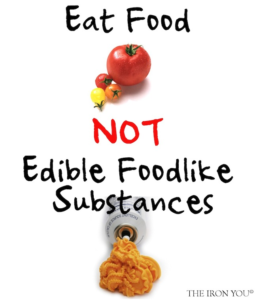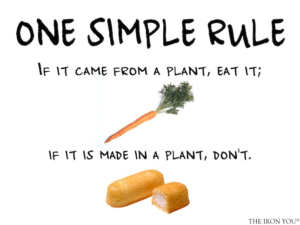Your Brain & Food

Let’s start with an idea: it’s unlikely that any food can make you smarter. But what you eat does have both short-term and long-term effects — on your mood and susceptibility for certain diseases, for example — which are all important parts of your brain and whole-body health.
Watch this 5-min video from TED-Ed for a quick introduction to how your brain processes energy and what types of food are best for its success.
As mentioned in the video, your brain is made up of fats and proteins, and uses compounds like micro-nutrients and glucose. Let’s review the relevant information:
- Your brain needs omega-3s and omega-6s. These have to come from your diet.
- Eat: nuts, seeds and seafood, particularly small fish like anchovies and sardines.
- Avoid: saturated fats like those found in fried foods, snack foods or sweet treats.
- Your brain has amino acids which are the precursors to neurotransmitters. These affect your mood, sleep/rest cycle and attentiveness.
- Eat: a varied range of foods so that your brain has access to the building blocks of a range of mood messengers. Keep your diet varied — your plate should include a rainbow of colors (literally).
- Avoid: “beige” or single-color diets that mostly consist of processed foods.
- Your brain needs micronutrients like zinc, salt and antioxidants.
- Eat: Similar to the above, consuming a wide range of whole foods like fruits & vegetables will mean that your brain has access to a range of nutrients, vitamins, and minerals. Focus on adding color to your diet through leafy greens and colorful vegetables.
- Your brain needs fuel in order to utilize these nutrients. This fuel will come in the form of glucose, which comes from the carbohydrates in your diet. The source of the carbohydrate makes a difference in how it is processed.
- Eat: complex carbohydrates like beans, whole grains, and sweet potatoes for sustained energy.
- Avoid: simple carbs like white bread, white rice or soda that will cause a short spike in energy followed by a crash.
- Your gut is part of your brain as well. Your digestive tract has the second-highest density of neurons in your body (second only to your brain) and it is influenced by the billions of “good” bacteria in your intestines. These bacteria are adjusted to what you eat and can even give you cravings for sugar, dairy products, fats and more.
- Eat: more fiber, as well as fermented foods like sauerkraut, kimchi, or yogurt.
- Avoid: a diet that consists mainly of low fiber and high-fat foods.
While this may seem like a lot of advice, you should focus on cooking with a variety of whole fruits, vegetables, grains and meats. Confused about what a whole food is? According to WebMD, whole foods are “foods that are as close to their natural form as possible.” Think of steaming a chicken breast instead of having chicken nuggets or baking a potato instead of having sour cream and onion potato chips.
These whole food swaps make a long-term difference. According to Dr. Eva Selhub Harvard Health Blog: “Multiple studies have found a correlation between a diet high in refined sugars and impaired brain function — and even a worsening of symptoms of mood disorders, such as depression.” Long-term studies also show that there is a negative impact of eating junk food over time in kids — children who had a diet high in junk food were more hyperactive and had more difficulty focusing in class.
With a diet high in whole foods, you’ll support your brain health and mental clarity long-term!



